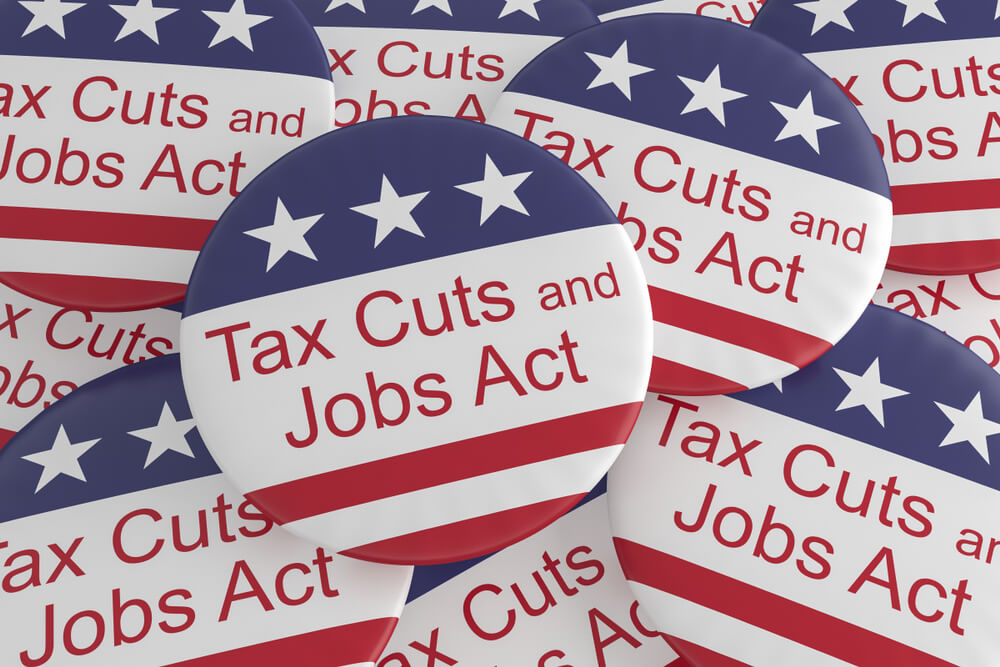With the ramp up to the 2020 elections beginning, President Donald Trump’s tax cuts have triggered the biggest partisan rift in two decades, and could play a big part in whether or not he is reelected as Democrats look to seize on the growing popularity of “wealth taxes.”
What most people don’t seem to understand is that their returns are smaller because they received more take-home pay in each check.
A throng of Democratic hopefuls running for the White House are pushing for higher taxes, particularly on the rich. Two recent polls regarding the Tax Cuts and Jobs Act show why Republicans didn’t campaign on the new tax laws heading into the 2018 midterm elections — because they’re wildly unpopular.
The first is an NBC/Wall Street Journal poll that shows the vast majority of Americans don’t think they got a tax cut at all, and just 17% of people believe their taxes went down. In contrast, 28% believe they pay more, 27% expect to pay about the same and the final 28% are still unsure.
Republicans are the only group in which 30 percent or more (33%) believe they’re getting a tax cut, a big reason why the tax cuts provided so little tailwind in 2018 when Democrats were able to wrest control of the House of Representatives.
The second poll, by Pew Research, shows the tax cuts remain underwater politically, with just 36% of Americans approving and 49% disapproving.
According to analysis by the nonpartisan Tax Policy Center, eight in 10 Americans received tax cuts in 2018 under the new law — yet the cuts were so small that most didn’t even notice, hence the disapproval.
Also weighing on peoples’ minds are smaller tax returns. According to the IRS, tax refunds through March are down by more than $6 billion from last year.
What most people don’t seem to understand is that their returns are smaller because they received more take-home pay in each check.
But the analysis showed that the lowest 60% of households took home an average tax cut of less than $1,000, while the top 1% of taxpayers could expect more than $51,000.
And it’s not just Democrats who feel left out of the tax cuts.
According to the NBC/WSJ poll of 1,000 adults, just 33% of Republicans believe they’re getting a tax cut, while 10% of Independents and 7% of Democrats do. Nationwide, only 25% of Americans say they got a tax cut. Among Trump’s core of supporters, only 36% believe they’re getting a cut, another 36% said their taxes stayed the same, and 6% believe they’re paying more.
There is a 3.1% margin for error in the NBC/WSJ poll.
A recent MarketWatch article notes how the tax code will play into the 2020 election by triggering the biggest partisan rift in two decades, according to the aforementioned Pew poll.
About 64% of Republicans say the new tax system is very or moderately fair, compared to 32% of Democrats — the lowest level ever recorded.
A big factor in the unhappiness over the tax cuts is the slashing of the corporate tax rate from 35% to 21%, and nearly three-quarters of Democrats say businesses earn too much profit, compared to 38% of Republicans who agree.
It wasn’t always that way. Before Trump was elected, partisans on the left and right had a similarly jaundiced view of the U.S. tax code. Gaps between the two parties emerged now and then, but they were never as wide as they are now.
The 2017 Trump tax cuts have deepened the division. Republicans reduced taxes across the board and instituted the biggest corporate tax cuts in 31 years.
While 71% of Republicans approve of the law, 79% of Democrats disapprove.
Men, older voters and those lacking a college degree are more likely to favor the Trump tax cuts, but women, younger voters and the college-educated are more likely to be opposed.
Overall, just 36% of voters approve of the law vs. 49% opposed, Pew reported.
[totalpoll id=”9890″]
